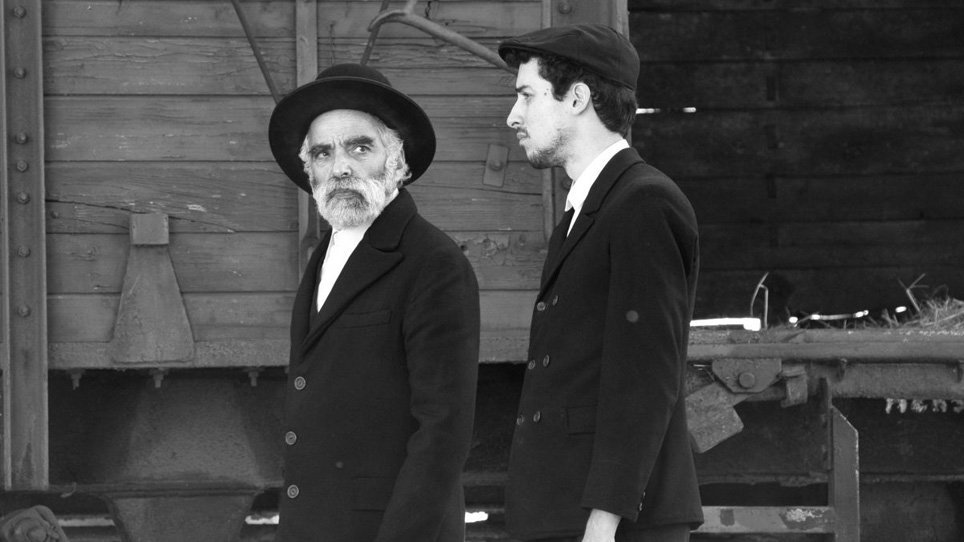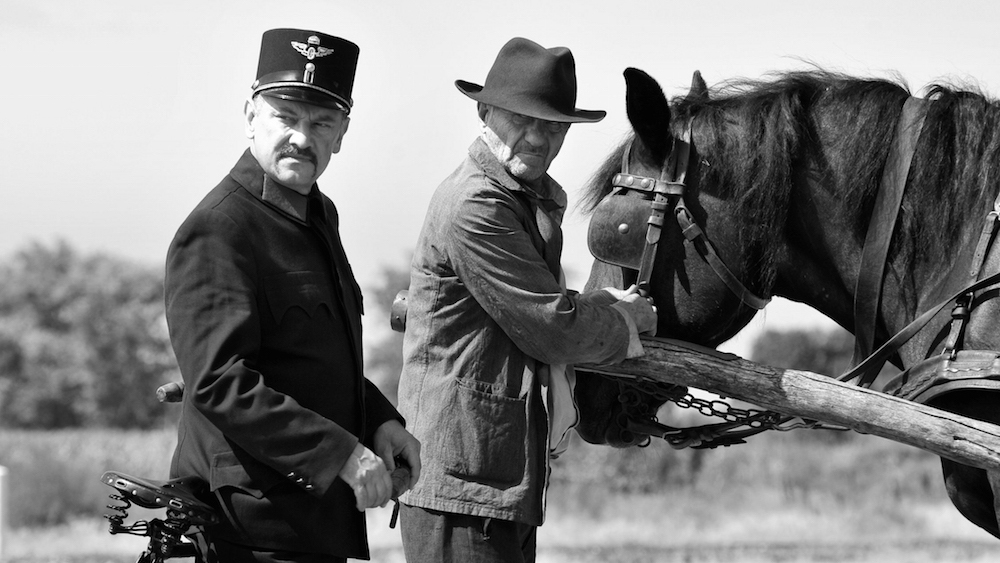By: Katherine Gianni
On Monday, April 1, The Holocaust Through Film series kicked off its April movie selection with a screening of Ferenc Török’s haunting feature “1945.” Assistant Professor of French and series co-organizer Jennifer Cazenave introduced the film to the group of students and community members gathered in CAS 224.
“The movie is an adaptation of a short story called ‘The Homecoming’ by a Hungarian writer named Gabor T. Szanto,” she said. “The story centers on two Jews that return to a small Hungarian village, and the events that follow.”
As the title proclaims, the tale is set in 1945, a turbulent year that saw the liberation of the concentration camps, the bombing of Nagasaki and Hiroshima, and the subsequent end to the second world war.
The film, however, opens with far more tranquil scenes shot in stunning black and white. We watch as two men disembark from a large steam train transporting wooden crates filled with what they claim to be women’s cosmetics and perfume. Their work is slow and deliberate as they shift their cargo from the locomotive onto a horse-drawn flatbed. Once everything is properly loaded, their journey through the village begins.

There is a continual air of mystery swirling around these two men, an elderly Orthodox Jew (Ivan Angelus) and his adult son (Marcell Nagy). This ambiguity exists, in part, because the pair remains eerily silent throughout the majority of the film. They do not stop to chat with any passersby, nor with each other. Their identities and withdrawn dispositions send the townsmen and women into a complete frenzy as each fear the duo have returned to reclaim their property post-Holocaust.
“We’ll have to give it all back,” Bandi (Jozsef Szarvas), the portly village drunk proclaims to Istvan, the hot-tempered town clerk. Calamity ensues, as women and men band together to hide valuables, burn deeds, and destroy photos of their friends’ past–friends that had been subjected to unfathomable cruelty at the hands of the Nazis. This defensive group mentality is a direct extension of said cruelty. The townspeople turn their guilt and terror into damning action, shoving stolen goods into cupboards and the car trunks, all while clinging to the facade that they have done nothing wrong.
“It’s interesting to see that with all this chaos the people in the town don’t actually talk to the strangers in their midst,” said Associate Professor of Hebrew, German, and Comparative Literature Abigail Gillman in a conversation following the screening. “There is this cloud of suspicion between what they want and why they’re there, but no one actually asks them until the very end.”
That conversation consists of a brief exchange between the strangers and the town clerk who asks them what business they had in the village.
“We’ve come for a burial,” the elder Jew replies.
“Who are you burying?” Istvan counters.
“What’s left of our dead.”
Istvan offers a handshake and his condolences, but ultimately nothing is done to recognize any past wrongdoings. The two men simply gather their remaining belongings and move onwards on a second journey, this time with a far less certain destination.
The Holocaust Through Film Series continues on April 8 with a free screening of “Son of Saul.” This event is open to all Boston University students, faculty, and staff. For more information visit http://www.bu.edu/jewishstudies/calendar/events/.

